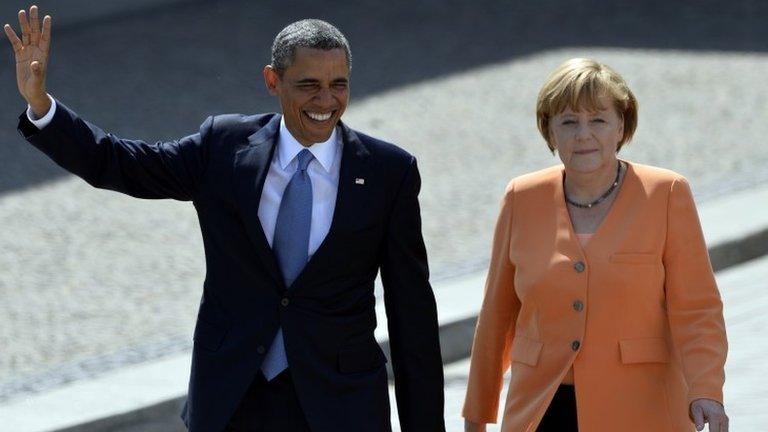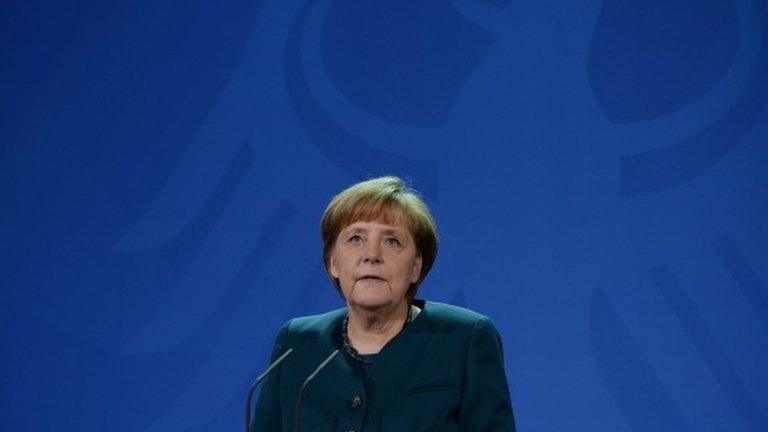Obama and Merkel: US and Germany still at odds over spying
- Published
President Obama: "It has pained me to see the degree to which the Snowden disclosures have created strains in the relationship"
The US and Germany remain at odds over digital spying and privacy policy, US President Barack Obama and German Chancellor Angela Merkel have said.
At a joint White House news conference, the two leaders said they were committed to an ongoing dialogue.
And Mr Obama sought to assure the German people they were not subject to "continual surveillance".
US-German relations have been strained by revelations US intelligence agencies had spied on Ms Merkel's mobile phone.
That came out in secret National Security Agency documents leaked last year by Edward Snowden, a former technical contractor with the US electronic spy agency.
At the joint appearance, Mr Obama acknowledged he was "pained" that Mr Snowden's disclosures had strained the US-German relationship.
And he noted that in a broad overhaul of US electronic spying practices he ordered over the past year, he had directed US intelligence agencies to weigh the privacy interests of non-Americans as well as US citizens and residents, "in everything that they do".
"These are complicated issues, and you know, we're not perfectly aligned yet, but we share the same values, and we share the same concerns," Mr Obama said.
'Ready to talk'
The US president said there were still "some gaps that need to be worked through" pertaining to America's policies of electronic spying on its allies, but he said Ms Merkel "should not doubt and the German people should not doubt how seriously we take these issues".
And he said he anticipated those issues would be resolved to the satisfaction of the US, Germany and the rest of world.
Speaking through a translator, Ms Merkel said there were "differences of opinion" to overcome on "what sort of balance to strike between the intensity of surveillance, of trying to protect the citizens against threats and on the other hand protecting individual privacy and individual freedom".
"I take back the message home that the US is ready to do that, is ready to discuss this," she said.
Ms Merkel has recently proposed establishing a European communications network to avoid emails and other data automatically passing through the US.
- Published1 May 2014

- Published25 March 2014

- Published15 February 2014
